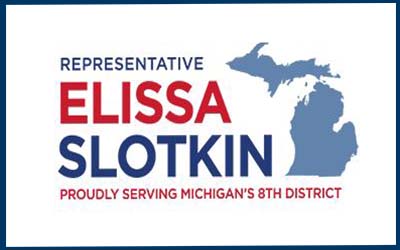
Whitmer Announces New ‘Make it in Michigan’ Investment

FOR IMMEDIATE RELEASE
August 16, 2023 Contact: press@michigan.gov
Gov. Whitmer Announces New ‘Make it in Michigan’ Investment to Build Affordable Housing and Support Businesses in Detroit, Holland, and Hudsonville
LANSING, Mich. – Today, Governor Gretchen Whitmer joined the Michigan Economic Development Corporation (MEDC) today to announce three community revitalization projects that will bring economic growth, housing, and increased vibrancy to Hudsonville, Holland, and Detroit have received support from the Michigan Strategic Fund. The projects are expected to generate a total capital investment of nearly $17 million.
“Today’s projects are helping to reinforce our neighborhoods as attractive places to live, work and play by transforming underutilized properties into productive spaces,” said Governor Whitmer. “Let’s keep investing in people and revitalizing places so everyone, in any community, can ‘make it’ in Michigan. Together, we will continue sending a clear message that Michigan is open for business and building on our momentum.”
New Mixed-Use Building in Hudsonville, Bringing Housing and Creating 40 Jobs
3424 Chicago Drive, LLC plans to demolish an existing building and construct Hudson Center II, a new three-story mixed-use development in downtown Hudsonville. When completed, the project will include four to five commercial spaces and 22 market-rate residential units. The project is another step forward in the city’s vision of creating a mixed-use town square and community gathering space. Hudson Center II will complete the first block of new downtown development and be a gateway parcel to the new downtown center with frontage across the community green.
The project is expected to generate a total capital investment of $7.1 million and create 40 full-time equivalent jobs with the support of a $950,000 Michigan Community Revitalization Program performance-based grant. In addition to bringing new housing, density, and redevelopment to the area, the project is expected to drive additional foot traffic and serve as a catalyst for additional investment in the city.
The city of Hudsonville is providing a 10-year property tax abatement valued at $750,000 and will support an additional tax abatement valued at $200,000 following the expiration of the initial abatement. The project has also received a grant award from the Ottawa County Brownfield Authority in the amount of $11,800. The city of Hudsonville is certified with MEDC’s Redevelopment Ready Communities program.
“We would like to thank the MEDC, especially our team that included Mackenzie Miller, Tori LaDuke and Bryan Robbins as they guided and assisted us in getting our MCRP approved,” said Scott Geerlings, developer of 3424 Chicago Drive. “This is the second project for us in helping the city of Hudsonville create a downtown area. We truly appreciate the MEDC. Without their assistance, this project would not be economically feasible.”
Mixed-Use Development will Fill Vacant Lot Near Downtown Holland

Downtown ID, LLC plans to construct a 6,000 square foot building on a vacant lot at 317 Central Avenue in downtown Holland, approximately five blocks from the main commercial corridor. When completed, the development will include commercial space on the first floor and approximately five one-bedroom apartments on the second floor.
The project is expected to generate a total capital investment of $1.5 million with the support of a $250,000 Build MI Community grant. The project will transform an underutilized property into a vibrant area, adding density and walkability to the community. The city of Holland is supporting the project with a 10-year Neighborhood Enterprise Zone tax abatement valued at $84,280. The city of Holland is certified with MEDC’s Redevelopment Ready Communities program.
“The city of Holland is very pleased that the zoning reforms we undertook to allow again these types of small mixed-use infill developments are paying off,” said city of Holland Director of Community and Neighborhood Services Mark VanderPloeg. “We are even more pleased, though, that entrepreneurial developers like Drew Durham see developments of this nature not only as a great investment and business opportunity for additional housing and retailing but also as a way to stitch an awesome, more traditionally designed building into the urban fabric of our near Downtown neighborhoods.”
Approved by the Michigan Strategic Fund in March 2022, the Build MI Communities Initiative provides grants to emerging developers for small-scale development in the state of Michigan. The applicants are intended to be individuals or entities with limited commercial and mixed-use development or redevelopment experience, who are engaged in development projects with a total development cost of $2.5 million or less.
“We are excited to start this infill development project,” said Drew Durham of Downtown ID, LLC. “It will transform a current vacant lot and bring additional commercial and residential spaces to the downtown neighborhood.”
New Community Center Coming to Woodbridge District in Detroit Creating 25 Jobs

The Danish Brotherhood Hall Redevelopment Project will renovate the existing, historic former Danish Brotherhood fraternal hall and adjacent lot in the Woodbridge Historic District of Detroit. When completed, the project will consist of a multi-use community event space with commercial space. The project is expected to generate a total capital investment of $8.2 million and create 25 full-time equivalent jobs. Renovation of the building will increase foot traffic, density and safety in the neighborhood and serve as a catalyst for future development and investment in the area.
The City of Detroit Brownfield Redevelopment Authority has received Michigan Strategic Fund approval of $383,158 in state tax capture for the reimbursement of brownfield activities at the site. The city of Detroit is supporting the project with the local portion of the brownfield plan with an anticipated value of $685,922. The city of Detroit is engaged with MEDC’s Redevelopment Ready Communities program.
“The renovation of the Danish Brotherhood Hall Redevelopment Project and other historic sites will continue to promote investment and economic growth in our communities,” said state Senator Stephanie Chang (D-Detroit). “I hope that this investment will deliver the needs and desires of the Woodbridge neighborhood and residents who will use this space. I’m excited about the new community center and the role it will continue to play for Detroiters.”
“This project will continue to make Detroit a more inviting space while advancing economic investment and creating full-time jobs,” said state Representative Tyrone Carter (D-Detroit). “It is so important to preserve and revitalize these collective spaces that have such a deep history in the community. Spaces like this mean a lot to residents and by investing in the space, we further invest in our community.”
“These placemaking investments reflect our continued focus on regional impact and supporting vibrant community spaces that lay the foundation for long-term economic wins and greater opportunity for all Michiganders,” said MEDC Sr. Vice President of Regional Prosperity Matt McCauley. “We are grateful to the Governor and legislators for their continued support of our programs. By working with local partners to focus on traditional downtowns and increase much-needed housing options, Team Michigan is building on our strong sense of place while supporting vibrant, unique places where current Michiganders and those we will attract can live, work, visit, and play.” |










